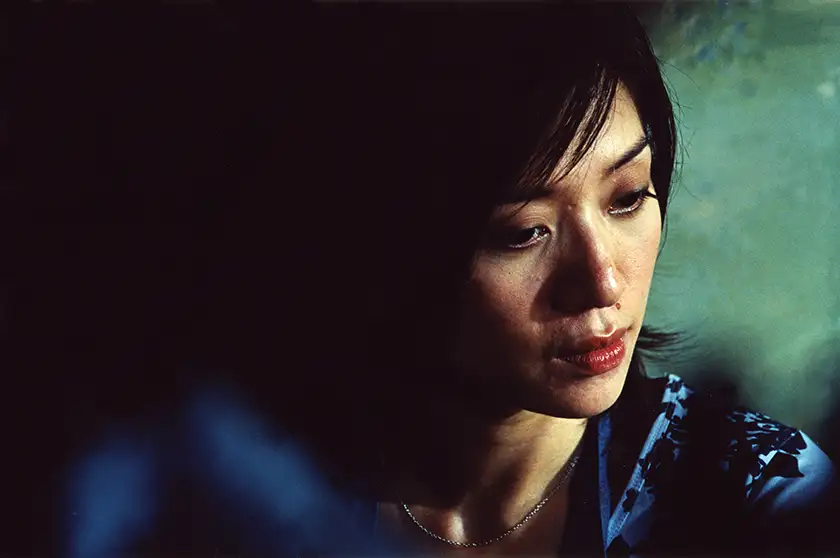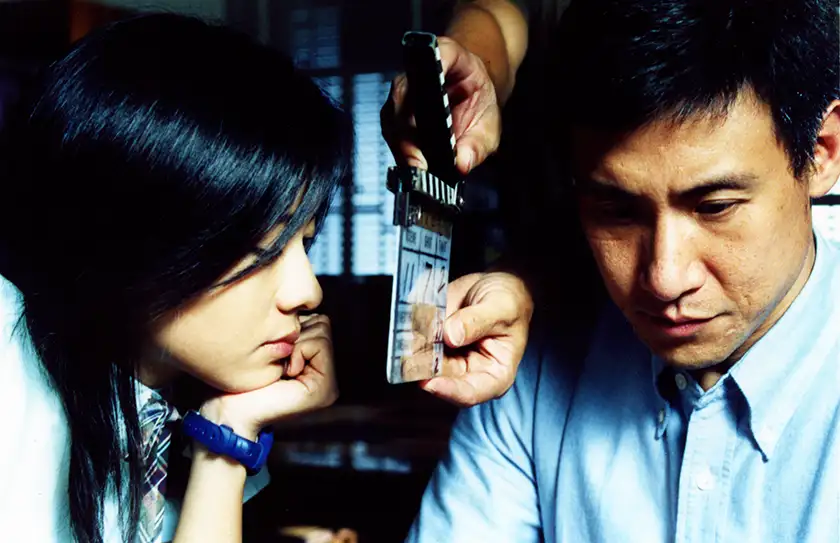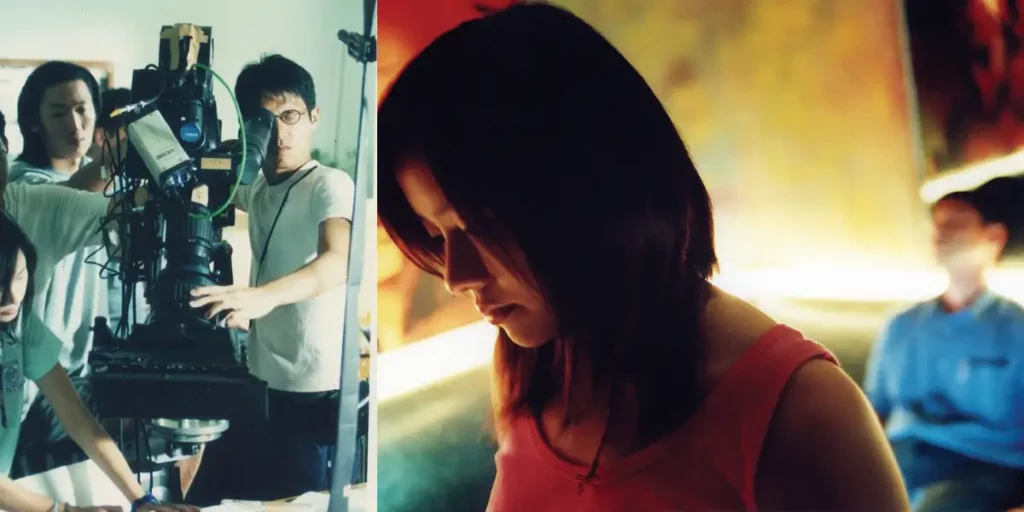2002’s July Rhapsody is a Hong Kong classic. We interview cinematographer Kwan Pun-Leung regarding his outlook, approach, and experiences working on the film!
July Rhapsody is a 2002 Hong Kong film directed by renowned filmmaker Ann Hui, with cinematography from Kwan Pun-Leung, whom we spoke with in this interview. Though it’s been hailed as a classic of foreign cinema for years, the movie only recently received a release in the United States. In July Rhapsody, Lam Yiu-Kwok (Jacky Cheung Hok-Yau) is a high school teach with unfulfilled aspirations and an empty marriage to Chan Man-Ching (Anita Mui Yim-Fong). But things get more interesting and uncomfortable when he becomes romantically involved with one of his students, Woo Choy-Lam (Karena Lam Kar-Yan).
To commemorate the re-release of July Rhapsody, we spoke with Kwan Pun-Leung and asked him about his outlook, approach, and experience while working on the film!
KWAN PUN-LEUNG’S OUTLOOK ON JULY RHAPSODY:
Could you relate to the story of the film in any way? What about it drew you to the project?
Kwan Pun-Leung: While making the film, I didn’t consciously think about any personal connections. But now that you ask, I remember that as a kid, I secretly admired my English teacher. Of course, I was too young to think about confessing my feelings or doing anything about it. After finishing this film and having been a teacher myself, I understand more deeply how common it is for students to have such admiration for their teachers. But it’s often unspeakable due to societal norms.
I got to know director Ann Hui at the wrap party of Hold You Tight, when the director of that film, Stanley Kwan, invited her over. I rarely watched Hong Kong movies back then, but her films Boat People and The Story of Woo Viet left a deep impression on me, and I felt that Ann was a very diligent filmmaker. Before the production of Ordinary Heroes, Ann approached me because Christopher Doyle agreed to shoot the film but later became unavailable. At that time, I was busy working on another project at our company, so I had to decline, but I told her that I wanted to collaborate with her on some experimental ideas sometime. When it came to July Rhapsody, either the producer or Ann (I forgot who exactly) called me, asking for the second time if I was available for the production timeline. I agreed immediately, before the cast was even confirmed.
Was the title of July Rhapsody – or Man of 40 in Chinese – the film’s original title?
K.P.L.: When I received the script, the film was initially called Waterway Voyage, maybe because the story mentioned a trip to the Yangtze River. Of course, I also think the scriptwriter Ivy Ho meant an inner journey. She feels that there are touching moments in one’s life: in Lam’s case, the stretch from school years to the start of a family, then to the age of 40, raising the sons, and facing the return of his mentor from his teenage years. The lyrics echo different chapters of his life story. His life is like a journey through the lyrics. Or maybe because Ann had made the film Woman of 40 (Summer Snow), the title was changed to its native title, Man of Forty.

KWAN PUN-LEUNG’S APPROACH TO JULY RHAPSODY:
I noticed that different periods of time are represented through different color schemes. Can you tell me more about the choices that were made regarding those colors?
Kwan Pun-Leung: There are several layers. One is what is happening between the father and the son on the beach in the present time. One is what just happened, the triangle formed by Woo and the couple. And finally, one is the past, in which young Ching had an affair with her teacher. We must help the audience recognize time and space, so the beach scene looks light yellow thanks to the sunset. The school scenes look blue, giving a cold and institutional vibe and highlighting teacher-student romances’ challenge to authority. Ann specified that she wanted the memories of youth to look red, inspired by the flowers on the trees she called the “flame of the forest,” so we used a pink filter on the flashbacks. The mainland scenes depict relatively colorful nightlife, which emphasizes Lam’s hidden ambition, desire, and inner conflicts. We used many artificial colors in this section.
The subject matter of a teacher dating his student can be touchy and taboo. Was there any concern on your end with how you helmed the scenes portraying it?
K.P.L.: To express the relationship between Karena Lam and Jacky Cheung’s characters, I primarily used close-up shots together with camera movements that navigate between their expressions. This approach amplifies their conflicting emotions and the subtle tension of being so close yet resistant. I found this filming method intriguing. Most films shoot the entire scene with both actors from start to finish and decide during the editing whose expression to show at what time, which is safer but more formulaic. My approach was risky because it required deciding on the spot when to shift the camera to one actor, leaving the other’s face unseen. If it’s not captured well, it could lose the scene’s essence. However, this method benefits from temporal continuity, making everything unfold realistically before the audience and enhancing the film’s time-based artistry. The interplay of camera movements and dialogue intensified the viewers’ anticipation and engagement, giving the scene more cohesive energy.

KWAN PUN-LEUNG’S EXPERIENCE WITH JULY RHAPSODY:
The Yangtze River is a big part of the film’s visual identity. Did you shoot the actual river? If so, what did that mean for you, if anything?
Kwan Pun-Leung: I really wanted to film the mountain and river landscapes myself. But due to budget constraints, Ann decided that most of the riverbank scenes in the film could be presented using stock footage. The only original part I shot was the last sequence of landscape scenes from a boat in a Hong Kong harbor, focusing on the boat’s wake and the view through the cabin windows. These shots use the boat’s partial view as the foreground rather than highlighting the landscape, emphasizing a subjective travel experience. This aligns with the story’s ending where the characters discuss their desire to travel the Yangtze River together, tying in with the subjective perspective.
What was it like to work with some of the actors of July Rhapsody?
K.P.L.: Before shooting this film, I had filmed the music video for Anita Mui’s song, “Woman Flower,” directed by Stanley Kwan, so I was already familiar with her. On the set of the film, Anita struck me as reserved, not interacting much with her surroundings. Whether performing or waiting for the next shot, she stayed focused in her own space, as if already immersed in the role. The moment the director called, “Action!” she was fully in character. Jacky Cheung was very approachable, friendly with onlookers, and even shared the same meal boxes with the crew, enjoying it without any airs. This was Karena Lam’s first feature film, and since she didn’t grow up in Hong Kong, her speech had a slightly slower rhythm and her tone was softer compared to typical Hong Kong girls. Even at the start of her career, she had a unique charm. This film won her the Best New Performer award, and she won more awards over time through hard work, from Best Supporting Actress to Best Actress. She became a goddess of Chinese cinema, and that makes me feel honored to have worked with her on her debut film!
This interview was edited for length and clarity.
A new 4K restoration of July Rhapsody had its US theatrical premiere at Film Forum (NY) on July 19, 2024. Discover KWAN Pun-Leung’s filmography!

